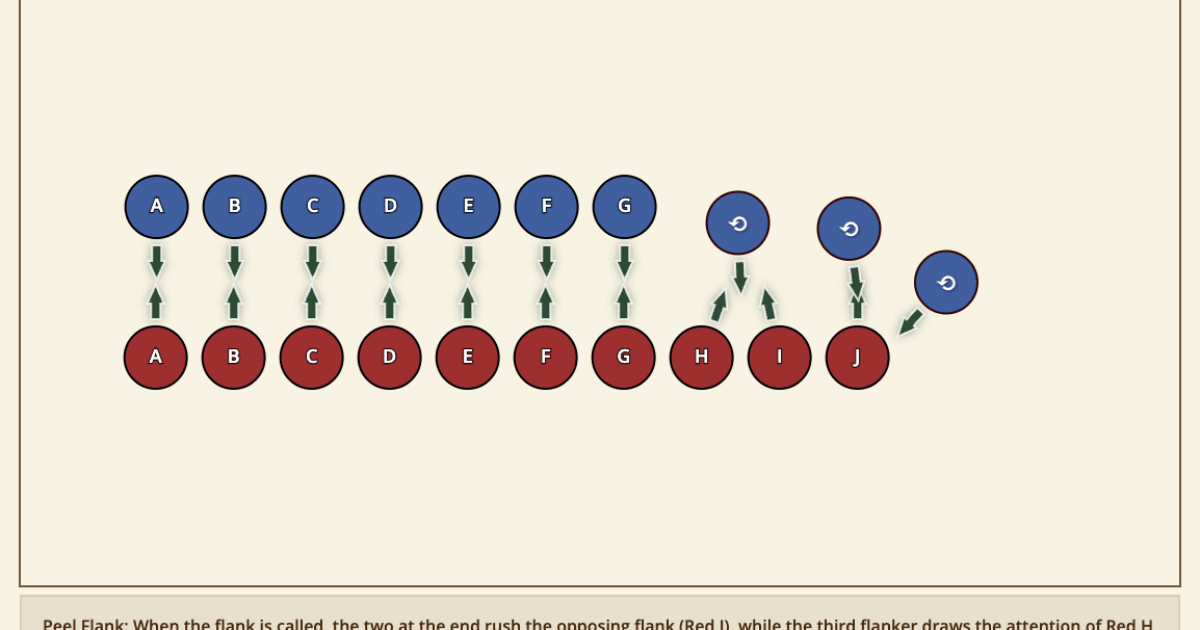Fencing is just as much a mental sport as it is a physical one. We’re playing chess with our opponent as we swing our swords and strive for victory. Sometimes, though, the mental side of fencing is difficult to grasp. Especially when there is very little in the way of instruction.
My hope with this Woodland Watch is to provide some of that instruction that can help you in things like Fight Club. It’s going to take some time and practice because breaking apart a fight is a skill you’ll need to learn. Don’t be discouraged if you’re not good at it right away. Let go of that idea and work hard until you develop the skill you’re looking for.
First, Train Your Eyes
The concept of training your eyes is not widely discussed, but it is vital in a fast-paced sport like fencing. When you first start out, you know you’re not seeing everything. It’s just too fast. As you gain experience, your perception will change and the fights will “slow down”. They’re not really slowing down, your eyes are just keeping up with the fight and that’s what you need.
Your vision can be broken down into several different specialization to train and improve. Things like Focus Flexibility (the ability to change focus rapidly), Peripheral Awareness (your ability to notice things outside of your focus), Dynamic Visual Acuity (the ability to see objects clearly when they are moving quickly), Depth Perception (the ability to make spatial judgements), Color Vision (the ability to distinguish colors), and Hand/Eye Dominance (understanding which hand/eye dominates or performs better). Each of these specializations can give you an advantage as you train and understand their uses within a fight.
If you know that you need to train your eyes, the very best thing you can do is watch fencing. Be attentive when you take a minute to sit down and watch. You do not have to watch the fastest fighters, you just need to focus and try to pick out details while the action is happening.
Second, Go in with an Analytical Mindset
If you really want to analyze a fight, you have to go into a fight with that in mind. It does not just happen. Proactively thinking and watching the fight as it unfolds is essential if you want to come out of that fight with anything useful. I often hear fencers say that they fight “instinctually”. Instinctual fighting, which is allowing your body and training to take over, is great but it removes a lot of the mental side from fencing.
If you want to learn how to analyze a fight, you have to fight analytically. Analytical fighting, which is fighting with the express goal to learn and experiment, allows your mentality to take over. Have a question in your mind before saluting and try to answer it before the fight ends. Even if you lose the fight, if you answered your question than you can count that as a victory.
Third, Watch for Patterns
Patterns are anything that happens multiple times, consistently. There is a lot of random chance in fencing and patterns should be big, red flags telling you to pay attention. Sometimes patterns will be pretty obvious, like an opponent who always attacks your gut. Some will be less obvious, like an opponent who holds their breath for just a moment before charging. They’re all over the place. You just have to notice them through everything else.
Patterns can be something you or your opponent does and they can signal you as something to be addressed. If you notice a pattern of always getting sniped in the face, you may need to address how you are defending your head. If you notice your opponent always starts low, but strikes high, address it and take advantage.
A word of caution. Patterns are not always to be trusted. Some fighters, even yourself, can use patterns to set false expectations and traps. They are most effective when used sparingly, but something to always have in the back of your mind.
Finally, Develop Fight Recall
There is no point to analyzing a fight if you don’t remember what happened and what you learn. The best time to analyze a fight is immediately after the fight has ended. Develop the ability to recall as much as you can about the fight that just happened. How did you move your sword? Why did you do it? Etc… If the fight was a blur, you’re not going to be able to analyze anything.
An easy way to develop Fight Recall is to restate or reenact the fight out loud. At first you’ll only remember a few details. After awhile, you’ll remember most of the fight. With time and experience, you’ll not only remember what you did, but why you did it and what was going through your mind. The more details you can remember, the more patterns you’ll see and the more you’ll learn.
Sometimes you’ll need to analyze multiple fights before you can glean anything useful. Fight Recall will help you keep important details in your mind until you can stitch them together into a theory to be tested.
Putting It All Together
Now that we’ve broken Analyzing a Fight down into more manageable parts, we can start putting them back together and using them. We can either do that outside of the fight or in the fight itself.
Analyzing Outside of the Fight
When you’re watching a fight as an outsider, you’re really trying to gather information. By watching someone fight, the goal is to walk away understanding how they fight and who they are as a fighter. Start by forming a general idea of how they fight. Are they defensive? Offensive? Do they dominate the fight or are they pretty reactive? Once you have the big picture, you can start filling in the details. Do you they fall into any patterns? Do they have a signature move? How do they react in certain situations? Strengths? Weakness?
Because you’ve trained yourself to see more clearly, you’ll be able to pick out these details and start piecing them together until you have a more detailed sketch of your opponent. Then you can start formulating strategies or theories on what you can do when you face them. Is your style a good match for them or do you need to change things up a little? How can you use your strengths to exploit their weakness? Etc…
By taking the time to analyze your opponent(s) before you face them, you can enter that fight with a game plan and allow you mind to focus on your plans instead of trying to unlock the puzzle while not getting stabbed.
Analyzing Inside the Fight
Analyzing a fight while you’re in the middle of it is a tricky business because you never know if something will work until you try it. Luckily, the process is fairly similar. Start out by trying to understand the general idea of your opponent and how they are fighting in the moment. Once you have the generals, you can start picking out details, patterns, etc… Experiment. If you do X, what do they do? Hmm… interesting. If you do X again, will they do the same thing? Alright, how can you use what you just discovered to give you an advantage?
Analyzing inside a fight is all about experimenting, testing theories, and recording the results. Going in with an analytical mindset will keep your focus on discovery instead of just winning the fight. Overtime, your experiments will help you learn more about your opponent and those details can help you form plans and tweak how you fight for each individual opponent.
Learn Something from Every Fight
There is an opportunity to learn something new from every fight, duel, melee, tournament, it doesn’t matter. I challenge you that as you face your assigned opponent in this week’s Fight Club, that you will not miss the opportunity to stop and discuss whatever happened with your opponent. Analyze the fight together and see what you can learn by putting a little thought into your fencing.


I feel like memory games, or things that help your memory will also help analyze fights better, I often completely forget a duel I have with someone when I try to recall it to attempt to analyze for my own knowledge. I definitely need to work on my memory while I’m the one fighting in it, because I can remember seeing moves, and other strategies watching others fight each other.
I’ve never considered doing a memory game for fencing. That would be very interesting! Zarka, do you have any ideas for any? Because I know Fight Recall is probably one the hardest pieces when it comes to analyzing a fight and I’m sure there are a lot of fencers who feel the same way.
I can’t think of any games off the top of my head, except the well known card memory game. But I think in terms of what I am thinking of, I might need something more intense.. or at least something that is different. There are a few games like that where it’s requiring the instantaneous memory of order, color, type, and then repeating it exactly as that. Those are hard though!
Hmm… This is definitely something to think about… I enjoy blending analyzing with a healthy dose of instinct, but I will use some of these tips when I fight… There is some stuff I had never thought about before… Thanks, Kane!
You’re welcome, Jay! Which ones had you not considered and which ones do you plan on using, if you don’t mind me asking?